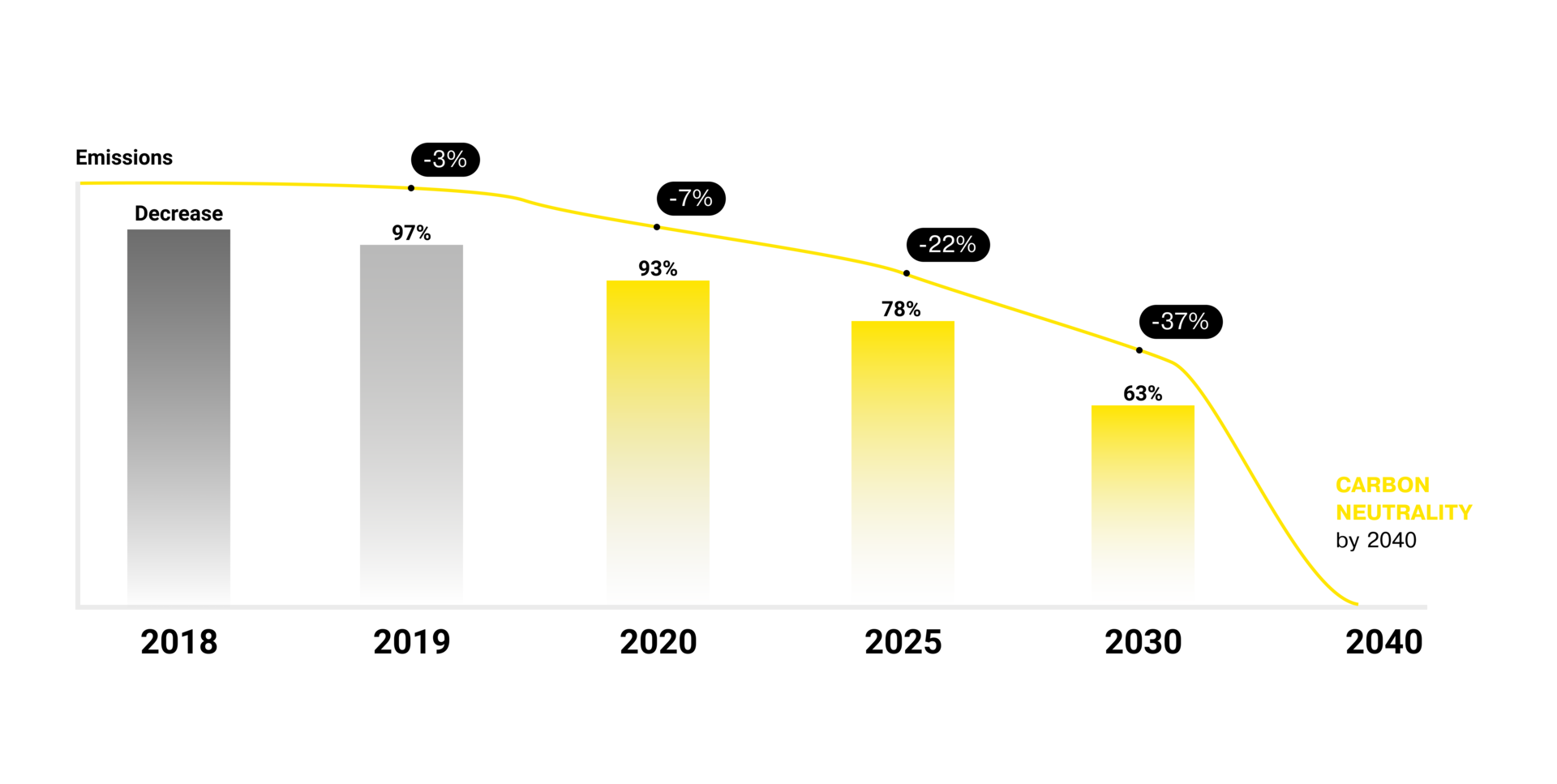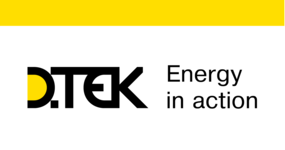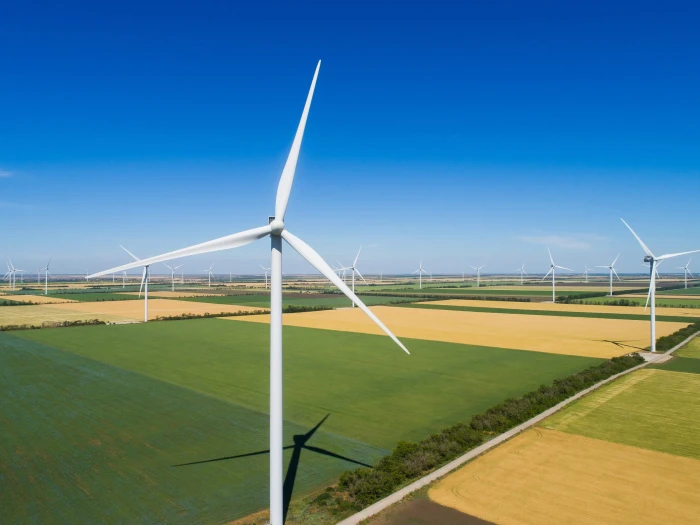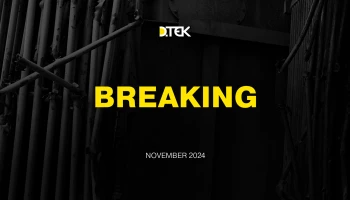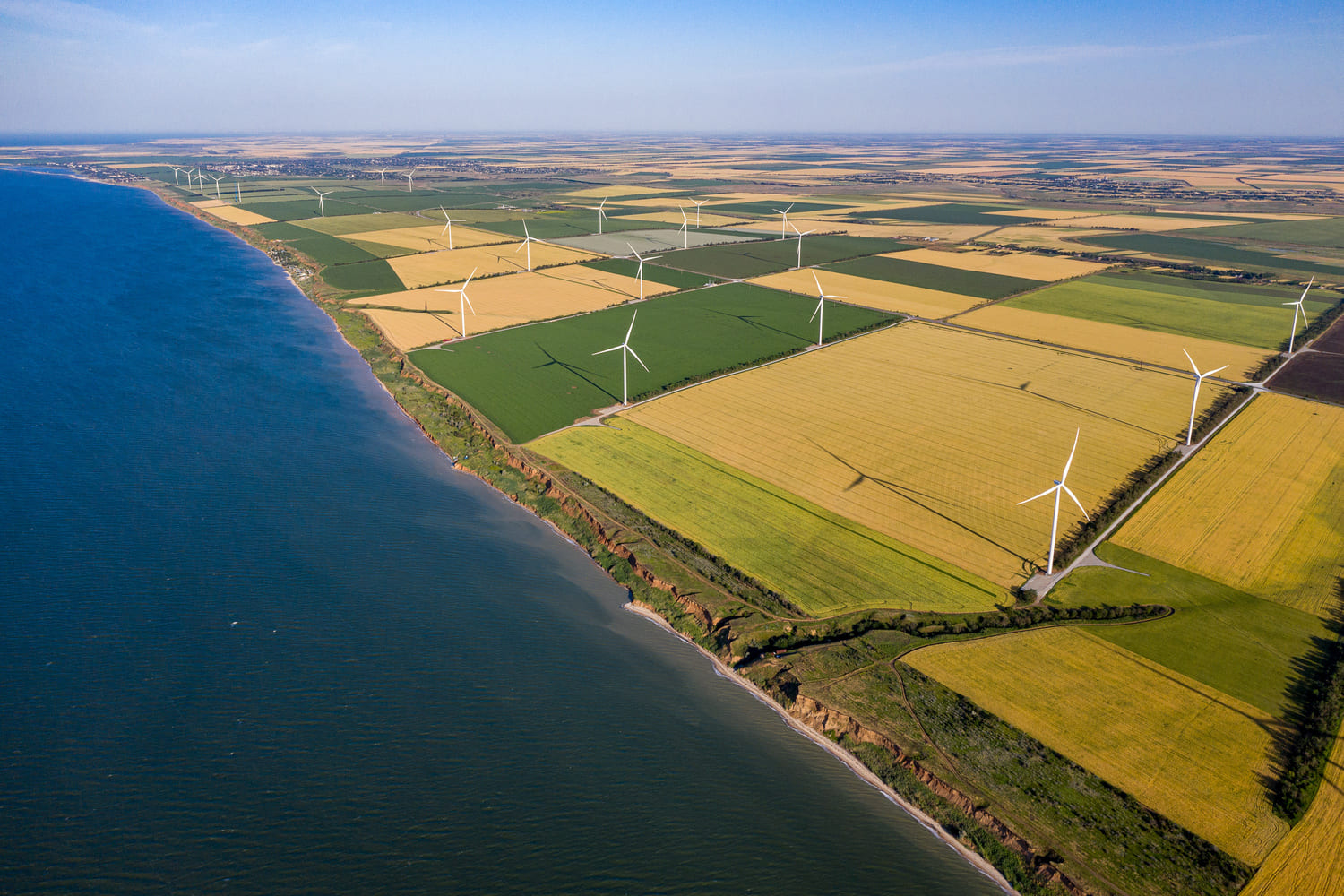 Realizing the scale of the global climate emergency, Ukraine has adopted ambitious goals to reduce greenhouse gas emissions. The country plans to reduce emissions by 65% of its 1990 emissions level by 2030 and to achieve carbon neutrality by 2060. In this regard, Ukraine is developing a new energy strategy, which will define measures for the green transformation of the energy sector and long-term energy balance.
Realizing the scale of the global climate emergency, Ukraine has adopted ambitious goals to reduce greenhouse gas emissions. The country plans to reduce emissions by 65% of its 1990 emissions level by 2030 and to achieve carbon neutrality by 2060. In this regard, Ukraine is developing a new energy strategy, which will define measures for the green transformation of the energy sector and long-term energy balance.
According to estimates of the Ukrainian electricity transmission system operator Ukrenergo, in order to meet the reliability requirements of the Unified Energy System of Ukraine, the available capacity of TPPs should be at least 12 GW by 2030. Today, this role is played by coal generation. Over time, it will be replaced by new, less carbon-intensive generation: gas, small nuclear or pure coal with technologies for capturing CO2.
To ensure reliable operation of Ukraine’s Unified Energy System, DTEK, as a key player in the thermal generation segment, will maintain the required capacity of coal-fired TPPs and also create new capacities in green generation. The company undertakes to achieve carbon neutrality by 2040, as was publicly announced by DTEK CEO Maxim Timchenko at the end of 2020. Additionally, DTEK was the first Ukrainian company to join the Powering Past Coal Alliance (PPCA) initiative at the UN Climate Change Conference (COP26) in 2021.
Realizing the importance of the development of renewable energy sources, which are a vital mechanism for reducing greenhouse gas emissions in the energy sector, DTEK Renewables has invested 1.5 billion euro in the construction of wind and solar power plants, which made it possible to reach 950 MW of installed capacity. Now the company is working on the implementation of a project for the construction of the Tiligulska wind farm with a capacity of 500 MW, which will begin construction in 2022. Thus, the total capacity of DTEK Renewables in 2022 will increase to 1.5 GW.
The total reduction in CO2 emissions from existing DTEK Renewables plants is 2.5 million tons:
- Botievska wind farm 200 MW – approx. 650 thousand tons saved per year
- Tryfonivska SPP 10 MW – approx. 13 thousand tons saved per year
- Nikopolska SPP 200 MW – approx. 350 thousand tons saved per year
- Prymorska wind farm (1st and 2nd stage 200 MW) – approx. 700 thousand tons saved per year
- Orlivska wind farm 100 MW – approx. 380 thousand tons saved per year
- Pokrovska SPP 240 MW – approx. 450 thousand tons saved per year
- Tiligulska wind farm with a capacity of 500 MW – after completion of construction and commissioning in 2022, it is expected that CO2 emissions will decrease by about 1.6-2.0 million tons per year.
Also, according to the 10-year scenario of electricity demand and supply developed by the transmission system operator Ukrenergo, by 2031, 500 MW of energy storage systems (ESS) should be installed in Ukraine to ensure regulation and frequency support in the Ukraine’s Unified Energy System.
DTEK Energy was the first to implement a pilot project to integrate energy storage systems into the United Energy System of Ukraine. In 2021, a solar power plant with a capacity of 1 MW was commissioned at the DTEK ZAPORIZKA TPP site. This project opened a new energy segment for Ukraine and allows to gain experience for successful further development. DTEK is planning its next ESS project with a capacity of 50 MW.
DTEK makes every effort to minimize the impact of production activities on the environment and to have positive social impact. We pay special attention to caring for the quality of life of future generations. DTEK is working with various international organizations to ensure a comprehensive transition to ESG, applying actions based on climate, energy, environmental, industrial and social aspects.
According to Sustainalytics, DTEK's risk rating was 26.6 in 2021. It was evaluated as medium risk according to Sustainalytics methodology. It identifies five categories of ESG risk severity that could impact a company’s enterprise value (negligible -0-10; low – 10-20; medium -20-30; high – 30-40; severe – 40+).
Compared to last year, Sustainalytics improved DTEK's rating by 3.3 points, positively assessing progress in the areas of resource use, interaction with local communities, labor protection, and environmental impact.
Forecast of financial and operational indicators of DTEK Group based on the New Strategy until 2030
The goals of DTEK Group are defined across two time horizons.
As shown in the forecast below, by 2030 the share of renewable energy sources in DTEK’s electricity generation portfolio will increase to 33%, and specific carbon dioxide emissions will decrease by 37% gCO2-eq/kWh.
DTEK Group plans to achieve carbon neutrality by 2040.
Revenue evolution
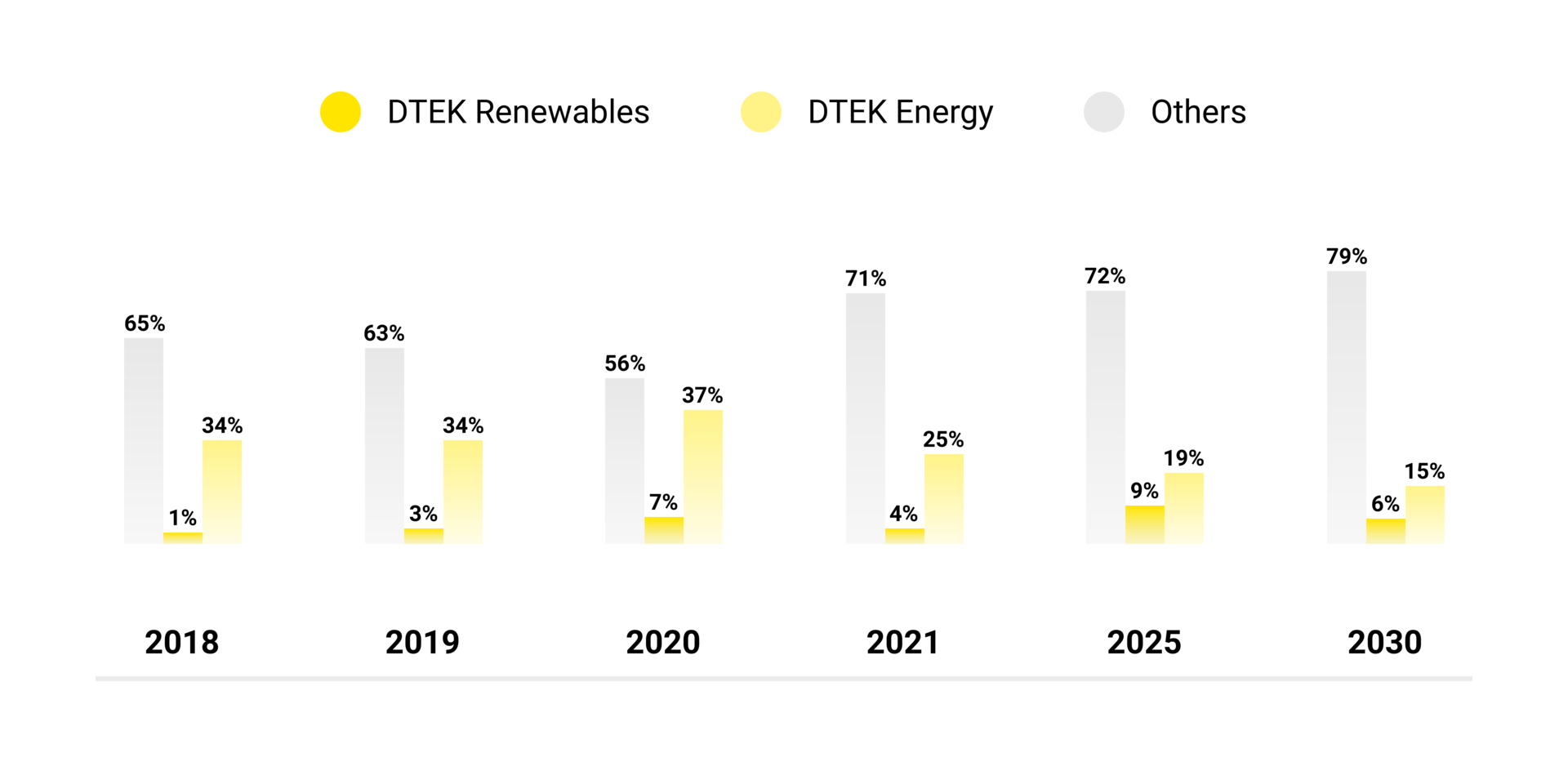
EBITDA evolution
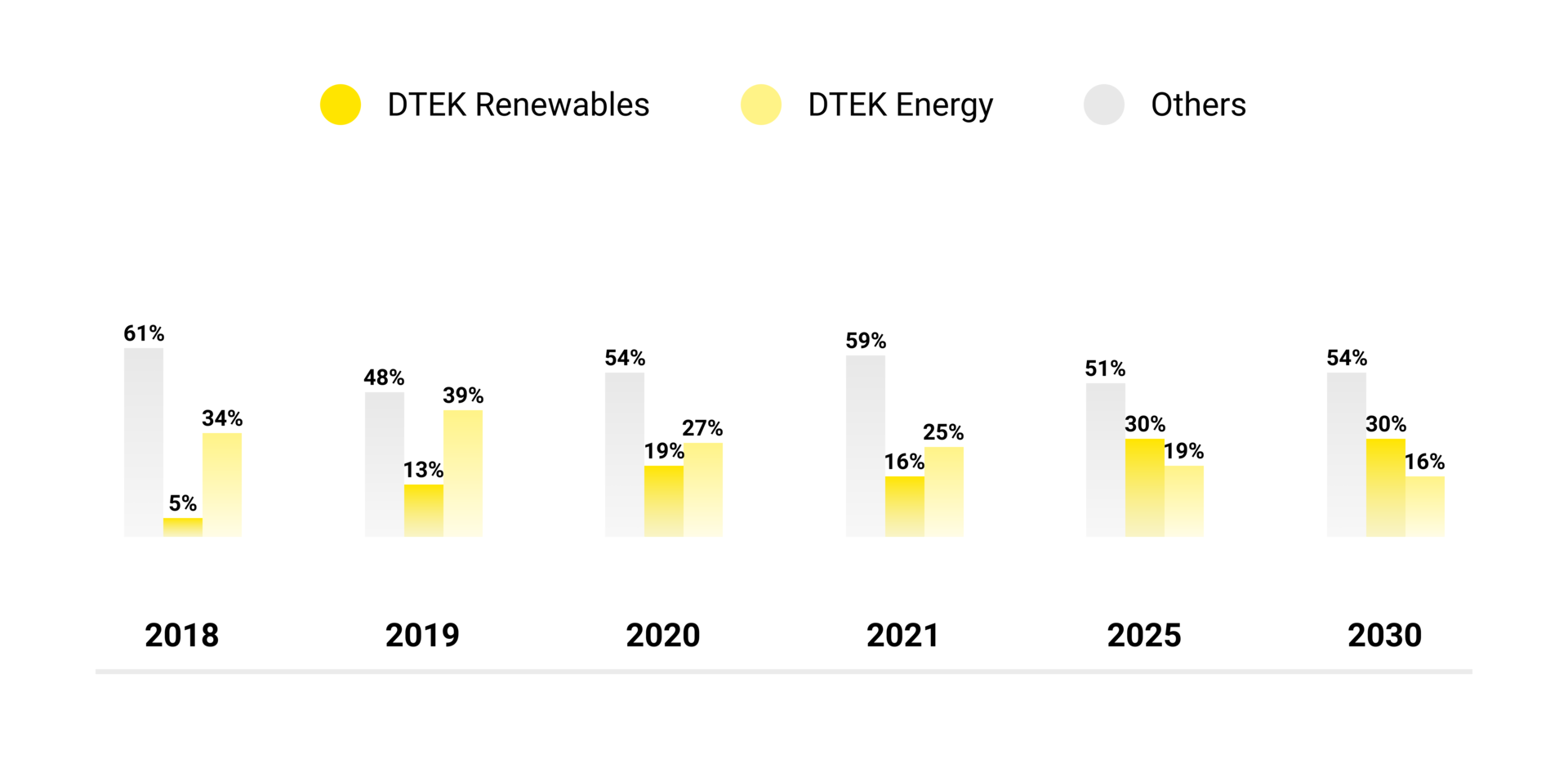
Electricity output evolution
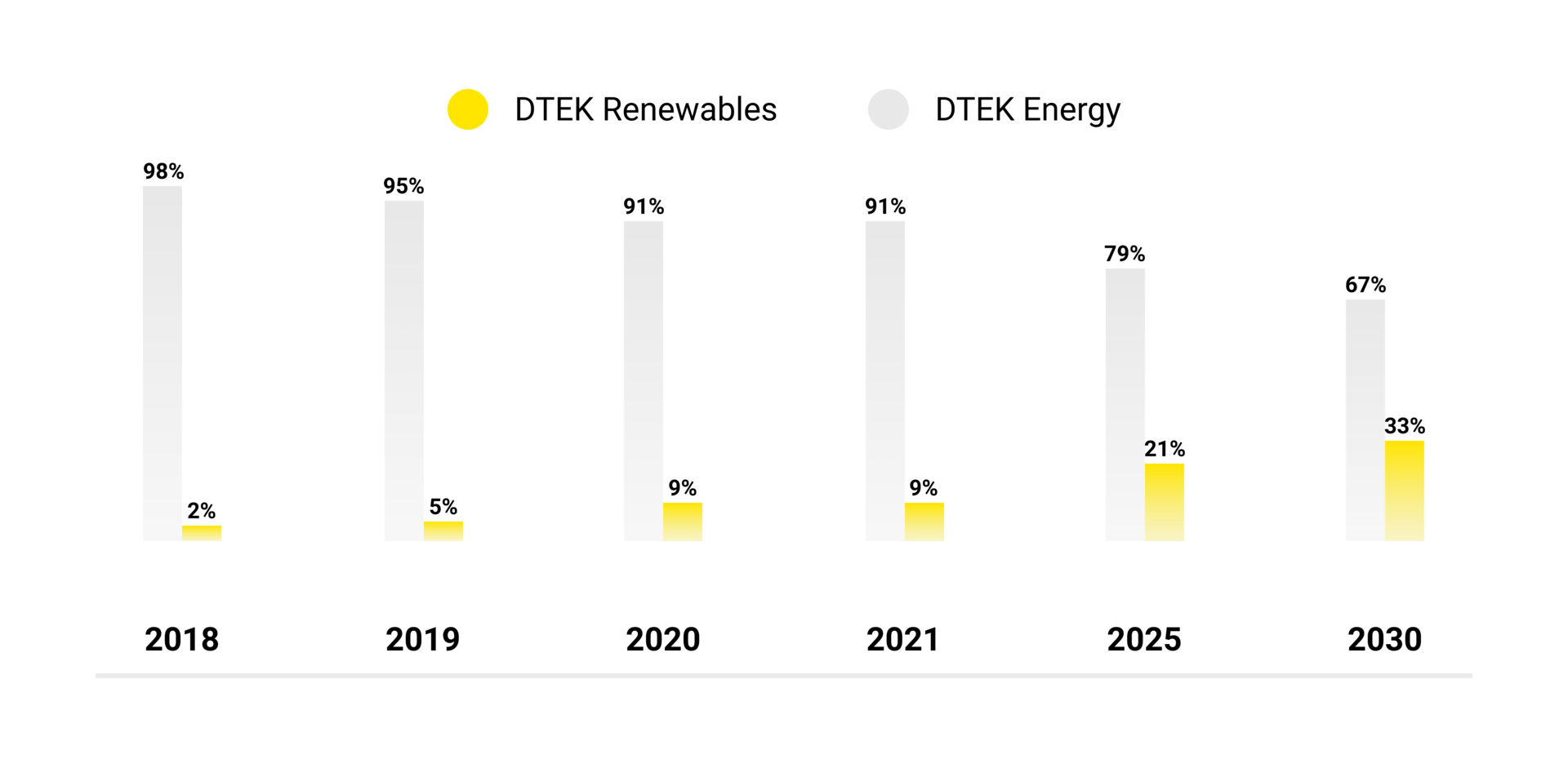
Net carbon emission reduction
